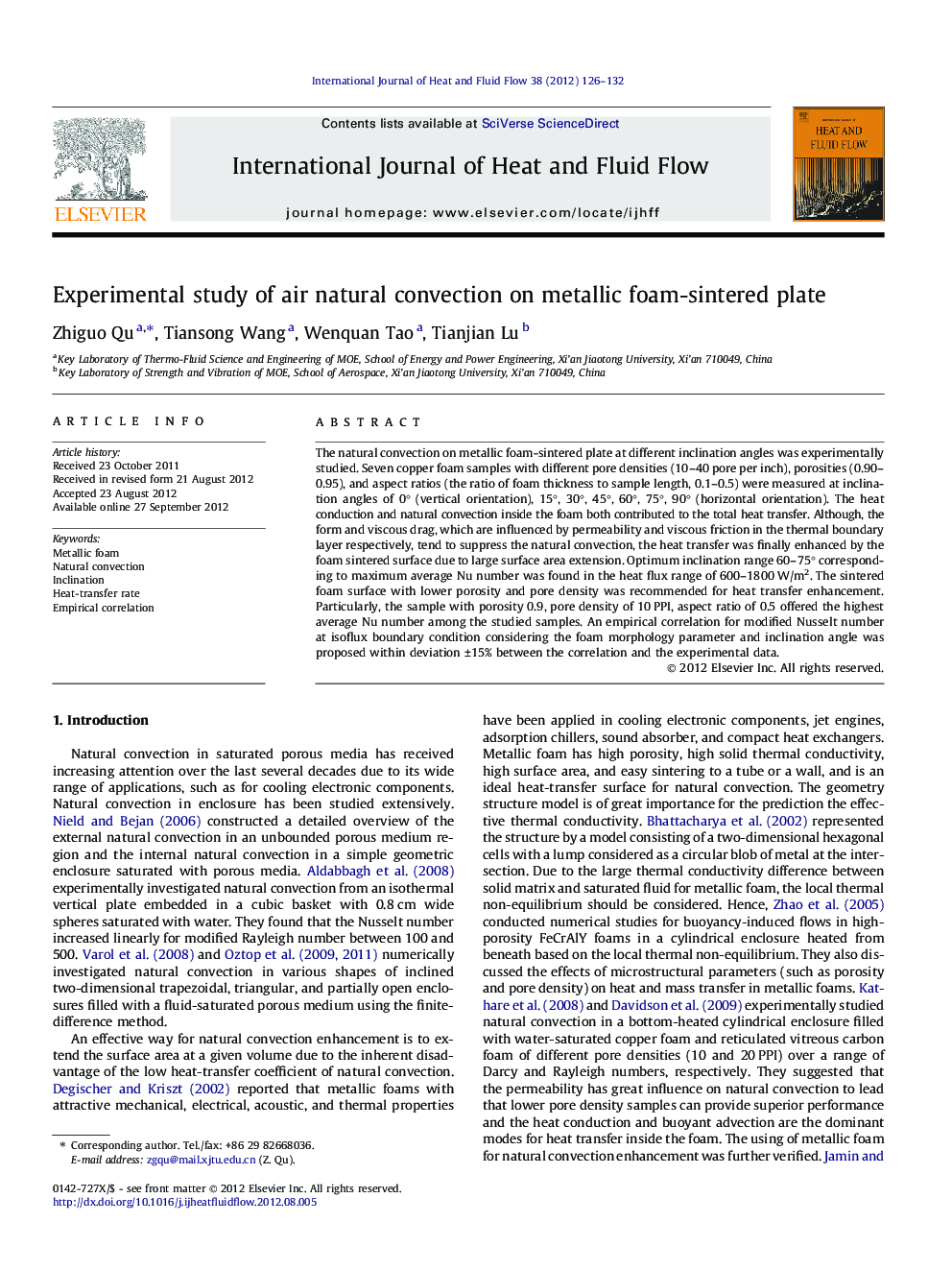| کد مقاله | کد نشریه | سال انتشار | مقاله انگلیسی | نسخه تمام متن |
|---|---|---|---|---|
| 655815 | 1457643 | 2012 | 7 صفحه PDF | دانلود رایگان |

The natural convection on metallic foam-sintered plate at different inclination angles was experimentally studied. Seven copper foam samples with different pore densities (10–40 pore per inch), porosities (0.90–0.95), and aspect ratios (the ratio of foam thickness to sample length, 0.1–0.5) were measured at inclination angles of 0° (vertical orientation), 15°, 30°, 45°, 60°, 75°, 90° (horizontal orientation). The heat conduction and natural convection inside the foam both contributed to the total heat transfer. Although, the form and viscous drag, which are influenced by permeability and viscous friction in the thermal boundary layer respectively, tend to suppress the natural convection, the heat transfer was finally enhanced by the foam sintered surface due to large surface area extension. Optimum inclination range 60–75° corresponding to maximum average Nu number was found in the heat flux range of 600–1800 W/m2. The sintered foam surface with lower porosity and pore density was recommended for heat transfer enhancement. Particularly, the sample with porosity 0.9, pore density of 10 PPI, aspect ratio of 0.5 offered the highest average Nu number among the studied samples. An empirical correlation for modified Nusselt number at isoflux boundary condition considering the foam morphology parameter and inclination angle was proposed within deviation ±15% between the correlation and the experimental data.
► The heat conduction and natural convection both contributed to the total heat transfer.
► The foam surface can enhance heat transfer despite of the induced form and viscous drag.
► Optimal inclination angle range of 60–75° was recommended.
► Foam surface with low porosity, low pore density was recommended.
► An empirical correlation with deviation ±15% was proposed.
Journal: International Journal of Heat and Fluid Flow - Volume 38, December 2012, Pages 126–132